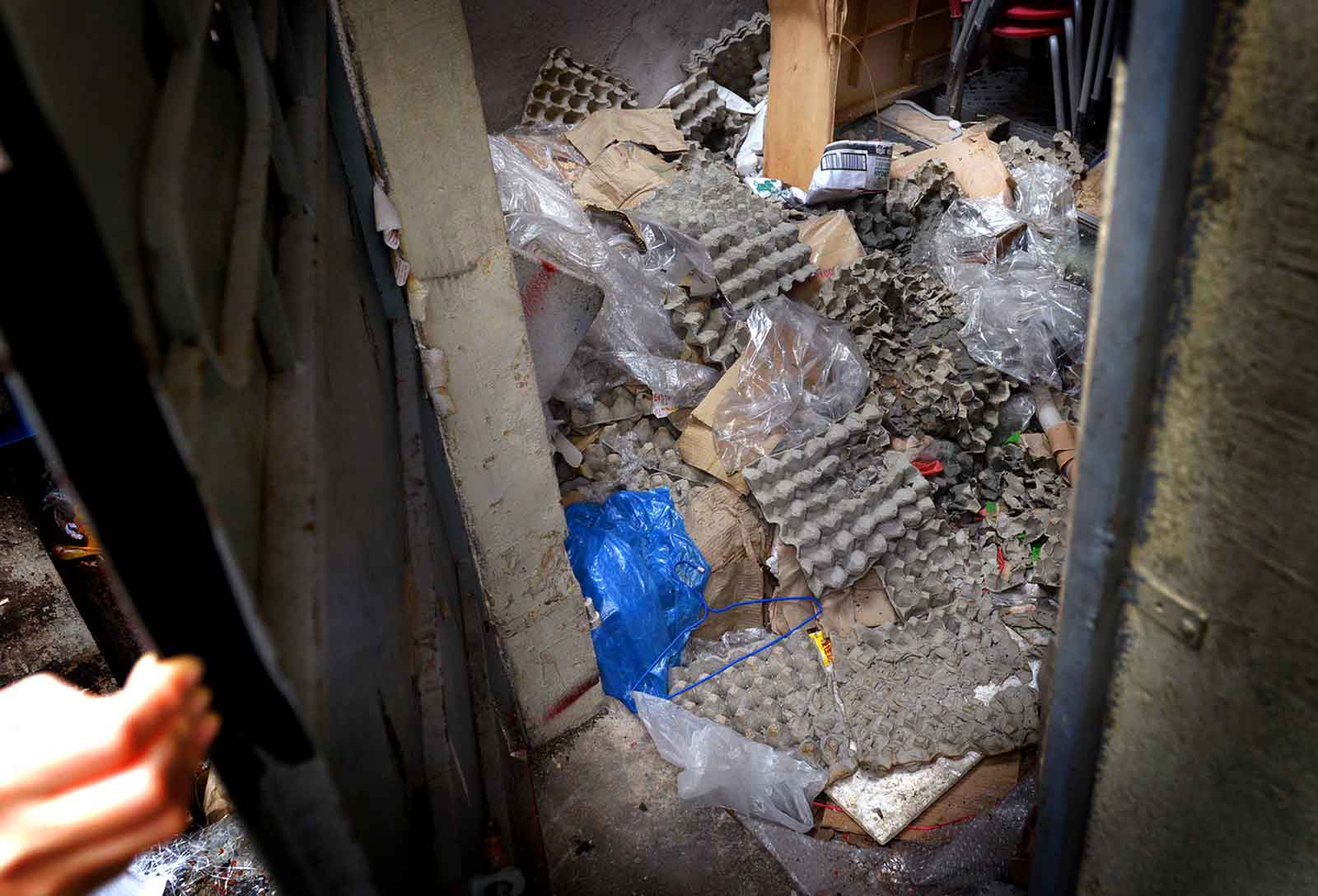Newspapers, empty shoeboxes and even microwave ovens.
These are just some of the items Aljunied Crescent residents say they see under their void decks, even after the neighbourhood had been identified as a Zika hot spot.
Ms Sulaiha Ngatiman, 29, a housewife who is six months pregnant, told The New Paper she had expected residents to play their part in fighting Zika.
She said: “I can’t believe that people still leave these items under the blocks, knowing that litter can cause mosquitoes to breed.”
The mother of four children, aged 10, nine, seven and three, said: “I am afraid my children will get bitten.”
Since Aljunied Crescent and Bedok North Avenue 3 were identified as Zika clusters late last month, residents like Ms Sulaiha have been worried about mosquitoes breeding in their residential area.
The improper disposal of litter such as newspapers, unwanted household items and furniture can become breeding grounds for mosquitoes.
When TNP visited the Aljunied Crescent area on Sept 5, the situation seemed to have improved.
Our team did not spot any bulky household items near the lift landings or rubbish chutes, but there were shoeboxes strewn under the blocks and plastic bags of rubbish in the drains – ideal breeding grounds for the Aedes mosquito, which carries the Zika virus.
Ms Sim Poh Gek, 63, who lives in Block 106, Aljunied Crescent, said: “I still see people disposing stacks of newspapers, cardboard boxes and plastic wrappers under the void decks.”
TRAP WATER
She said: “If it rains, the paper will absorb and trap water. My fear is that when the rubbish is not cleared, the void decks could easily turn into mosquito breeding spots.”
TNP also spoke to residents in the Bedok North Avenue 3 vicinity.
One resident, who wanted only to be known as Ms Swee, said: “I see bulky household items like cupboards and even sofas left in void decks and near lift landings.”
The 36-year-old mother of one said: “These people are quite selfish. They leave these unwanted items under our flats for their convenience, but they don’t see how it can be a potential threat to other residents, especially when Zika cases have been reported in the area.”
When TNP visited the Bedok North Avenue 3 area on Sept 5, we saw a discarded cupboard left near the rubbish chute of one of the blocks.
Wooden chair frames and soiled pillows were also left near the lift landing of another block.
Ms Sulaiha said: “You cannot just leave your unwanted items at the lift landings or void decks and expect the cleaners to take them to the proper disposal sites.
“The responsibility lies with each individual to clear his or her own litter and keep the area clean.”
Ms Sulaiha also said that the town councils should step up efforts against persistent dumping by imposing strict fines.
The town councils in charge of Aljunied Crescent and Bedok North Avenue 3 told The New Paper they have stepped up cleaning efforts and are working closely with the National Environmental Agency (NEA) to monitor the litter situation.
Professor Annelies Wilder-Smith, who directs the Global Health and Vaccinology Programme at Nanyang Technological University’s Lee Kong Chian School of Medicine, told TNP: “Litter that carries small amounts of water can become breeding sites.
“Litter or rubbish can also add to shady areas under which larvae can grow. The shade could also protect breeding sites even during fogging and enhance mosquito breeding.
“Litter should be cleared away at least twice a week to stop the mosquito cycle. Clearing litter is just one of many approaches that should be done at the community level to reduce breeding sites.”
Despite the increased efforts by the town councils and the NEA to keep Zika hot spots clean, some residents feel that this should not only be done when an outbreak happens.
Ms Sim said: “Residents and the town council should always take cleanliness and hygiene matters seriously.

This article was first published on Sep 12, 2016.
Get The New Paper for more stories.



















